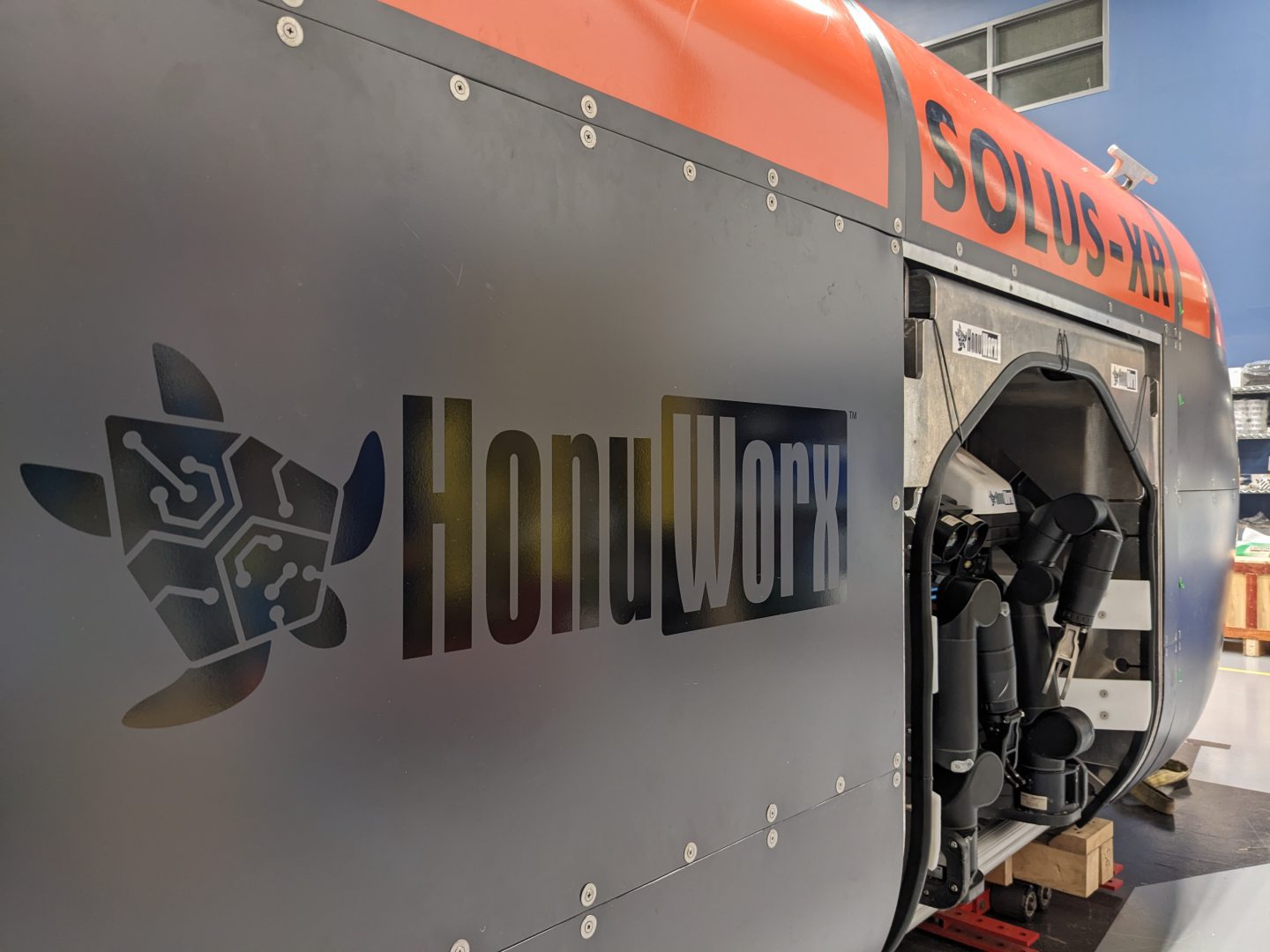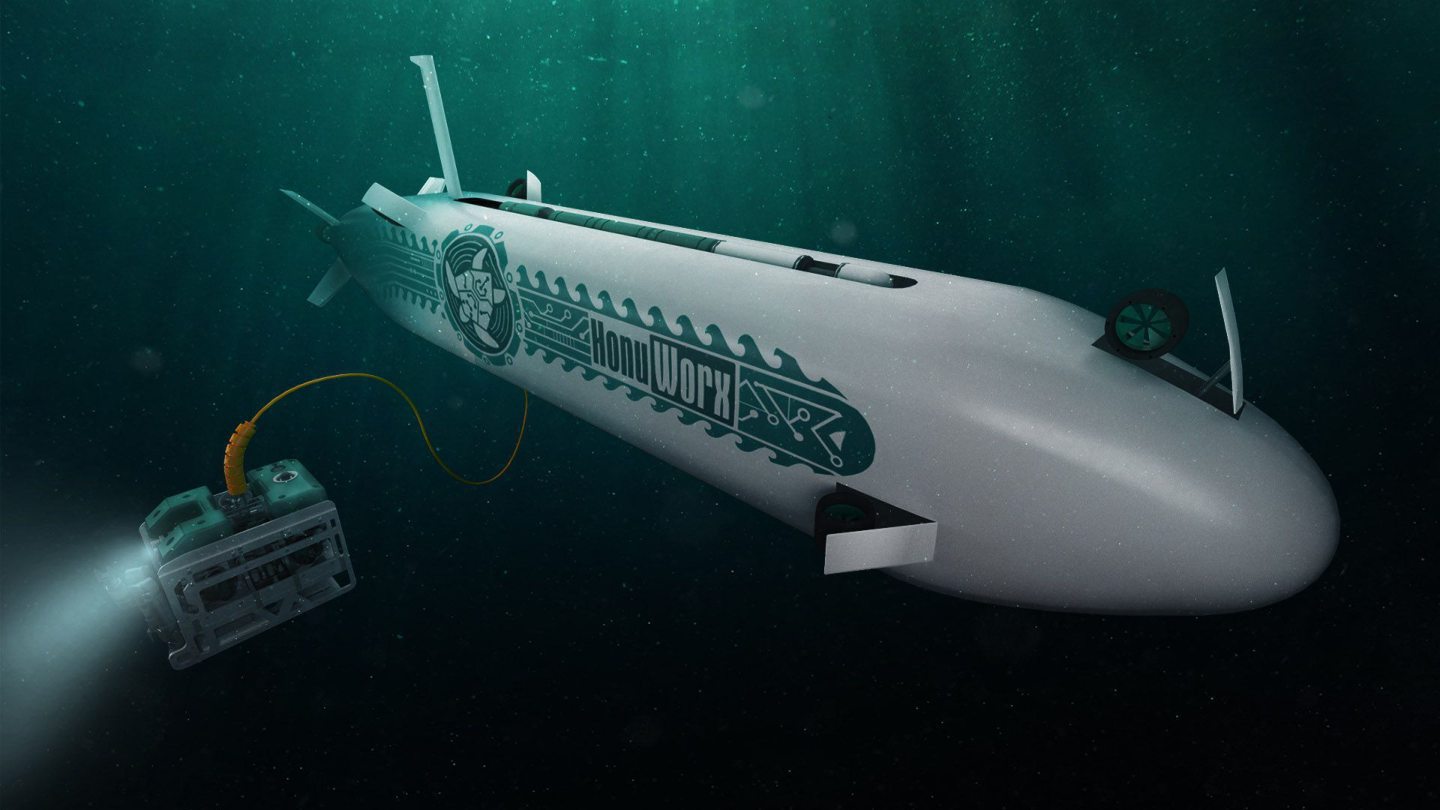Scottish subsea robotics firm HonuWorx is aiming to raise £30 million from investors to build a fleet of 50 autonomous submersibles for offshore inspections.
Headquartered in Aberdeen, HonuWorx said the funding will help treble its headcount over the next two to three years and to develop a commercial pilot system in 2025.
HonuWorx is developing the Loggerhead “mothership”, a remotely operated, fully-electric which can operate autonomously.
The Loggerhead deploys smaller remotely operated vehicles (ROVs) once it arrives at a work site, such as a wind farm or offshore oil field.
The submersible takes its name from the oceanic turtle which is known to migrate nearly 8,000 miles to feeding grounds.
The all-electric submersibles are similarly designed for “ultra-long endurance”, travelling directly from port to a worksites such as offshore oil fields or wind farms.
As well as reducing repair costs, HonuWorx said the system can replace heavily crewed vessels which typically run on diesel engines.
Altogether, the firm said this can remove the equivalent of 4,000 cars per vessel displaced.
Remote submersible fleet
HonuWorx now plans to develop a fleet of Loggerhead submarines, aiming to capture a 20% share of the estimated $3.2 billion (£2.46bn) global market for subsea inspection.
Firms involved in subsea ROV inspection are set to play a key role in the UK energy transition across sectors like floating wind and carbon capture and storage.
It comes after the Aberdeen firm, launched in 2020, secured “seven-figure” investment backing earlier this year alongside an ETZ Challenge Fund grant.
By 2030, the firm plans to develop a fleet of 10 Loggerhead units, with construction taking place in Aberdeen.
Longer-term, HonuWorx is seeking to deploy 50 submersibles around the world, with an initial focus on the UK North Sea.
Other target markets include the Gulf of Mexico and Australia.
Loggerhead test a ‘world first’
The investment backing follows a “world first” offshore test of the coast of Canada in December last year alongside Canadian ROV firm Cellula Robotics.
HonuWorx successfully deployed a Seatronics ROV from its Loggerhead prototype offshore, with the firms controlling the vessels remotely from shore via the cloud.
The Canada test project was supported by oil majors TotalEnergies and Shell, alongside Aberdeen’s Net Zero Technology Centre (NZTC).
HonuWorx said the test proved the viability of its Loggerhead system, which could remove the need to use large surface ships to deploy the smaller ROVs.
In the months since, the Loggerhead has undergone additional field testing with upgrades including a communications buoy and “variable autonomy architecture”.
HonuWorx said its system provides a “cleaner, more cost-effective and safer deployment” compared to the current industry standard involving surface vessels.
HonuWorx a ‘world leader’
The company said its advancements in technological readiness position HonuWorx as a world leader in “supervised autonomy” systems.
HonuWorx chief executive Lee Wilson said its system improves the economics, safety and emissions of subsea work by removing the large ships used to deploy divers and ROVs.
“We are going to change the way the world works underwater, accelerating the energy transition, and enabling the safe and sustainable scaling of subsea robotics for a growing blue economy,” Wilson said.
TotalEnergies UK subsea lead Greg Jones described Loggerhead as the “next stage of subsea autonomous systems”.
Jones said the French supermajor has been keen to support development of the technology, and will be keeping a close eye on how it develops further.
HonuWorx growth
Launched in 2020, HonuWorx counts ROVOP founder and former chief executive Steven Gray among its executive team.
In its latest capital raise in September, the firm secured funding from investment syndicate TRICAPITAL Angels, Scottish Enterprise, and UK Innovation and Science Seed Fund (UKI2S).
UKI2S is investing in HonuWorx for the second time after bringing the firm into its portfolio earlier this year.
HonuWorx’s expansion push comes as trade association the Global Underwater Hub warns the UK needs to increase subsea investment to capitalise on floating wind.
Recommended for you


 © Supplied by HonuWorx/True North
© Supplied by HonuWorx/True North © Supplied by HonuWorx
© Supplied by HonuWorx © Supplied by HonuWorx/True North
© Supplied by HonuWorx/True North